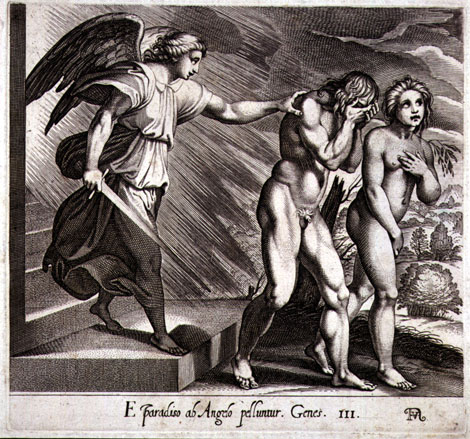“The Gift of India,” written in 1915 by the “Nightingale of India” Sarojini Naidu, is a patriotic poem included in her volume of poems called “The broken wing.” This poem focuses on the valuable contribution that the Indian soldiers made to live up to their commitment to the allied forces during the First world war. The poem is narrated from a first-person narrative where the speaker is Mother India. This poem is emotionally and sentimentally charged with the feelings of respect and love for the Indian soldiers who sacrificed their lives to honor their motherland. Through this poem, Sarojini Naidu has attempted to pay homage and respect to the martyred Indian soldiers and awaken the nation’s people to cultivate and nurture a spirit of patriotism for their own country.
The Gift of India: Analysis
Being a patriot herself, Sarojini Naidu has captured the pride in one’s heart for the honorable Indian soldiers by personifying mother India. The poem evokes a sense of pride and grief at the loss of several lives of Indian soldiers in the First World War. The poem begins with Mother India asking if she has withheld any resources from the world, be it garments, clothes, or food. She suggests that even though the British were exploiting the Indian resources for their own selfish needs, India has always fulfilled their global obligations. Mother India has given her sons to serve the world in crisis without any hesitation. India is firmly committed to honoring her international commitments, which she proved by sending out the sons born out of her womb.
In addition to the mother’s pride in her sons’ achievements, a sense of pain and agony is expressed in the poem, suggestive of a mother’s pain in being separated from her children. Mother India laments the death of the Indian soldiers who gave up their lives wholeheartedly to honor their country’s dignity. She speaks about the brutal manner in which the soldiers have died- some scattered like shells on the Egyptian sea while some on the shores of the Persian sea. The poet refers to the Indian soldiers who died in Persia, Egypt, Belgium, and France during the first world war. The Indian soldiers had no real motive to participate in the war except to serve the British. In literature, writers and poets have often glorified wars. However, in this poem, Sarojini Naidu tries to bring out the futile and brutal aspect of wars as she mentions how the dead soldiers are not even given a proper burial. They lie with pale brows and broken hands in “alien graves.”
Mother India is grief-stricken and sorrowful as she thinks about the unfortunate ends of the Indian soldiers. These soldiers have valiantly fought to maintain the integrity and honor of their motherland. Amidst all the pain and suffering, Mother India feels proud of her sons who have sacrificed their lives on the battlefield as she sees hope for a better future where there are no hatred, terror, or wars. The “sad, glorious vision” suggests the hope that the Indian soldiers would someday stop serving the British and wage war against them to free themselves from their tyranny. The ‘sad’ part of her vision is the loss of several lives in the war. At the same time, the glorious part is yet to come, which will ensure peace and harmony in the world.
Finally, she urges people to remember and respect the contribution of Indian soldiers when love and peace take over hatred and cruelty. She asks the British to remember and value the sacrifices that Indian soldiers have made for them.
“The Gift of India” is a short poem of 24 lines with a specific rhyming pattern. Each line in the poem rhymes with the next line, adding a certain lucidity to the poem. A number of figures of speech have been used in the poem to enhance the beauty of the poem’s language. These include alliteration, metaphor, simile, personification, rhetorical question, an oxymoron.
Sarojini Naidu has excelled in incorporating poetic imagery in her poems. In this poem, too, we find several visual, auditory, and color imagery. For instance, the image of the dead Indian soldiers “gathered like pearls in their alien graves” is a very pictorial representation of the ravages of wars. The “red banners of victory” bring forward a suggestion of a Victory at the cost of the blood of Indian soldiers.
However, this poem can be read as an anti-war poem that brings forward the tragic aspect of wars. The horrid image of the soldiers lying dead in alien lands and the blood-tainted meadows bring forward a picture that is hard to praise. Mother India’s lamentation for the loss of the Indian soldiers in wars can be seen as a reflection of every Indian mother lamenting the loss of her martyred son. In the end, she hopes for a world free from the brutality of war, a world that would be modeled on peace and harmony, a world that will remember the contributions of the martyred Indian soldiers. You can also refer to The Gift of India Summary here.
Some online learning platforms provide certifications, while others are designed to simply grow your skills in your personal and professional life. Including Masterclass and Coursera, here are our recommendations for the best online learning platforms you can sign up for today.
The 7 Best Online Learning Platforms of 2022
- Best Overall: Coursera
- Best for Niche Topics: Udemy
- Best for Creative Fields: Skillshare
- Best for Celebrity Lessons: MasterClass
- Best for STEM: EdX
- Best for Career Building: Udacity
- Best for Data Learning: Pluralsight
















